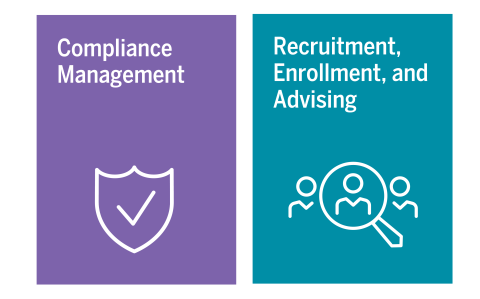A valuable starting point for anyone new to international education. Many advisers, faculty, and administrators may not have sole responsibility for international students and scholars, but will interact with them on a regular basis. Learn the basic processes and procedures of how non-immigrant students and scholars gain and maintain their status in the U.S. Gain an overview of a variety of visa types, including but not limited to F-1 and J-1, which are found in the U.S. educational system. This workshop also provides a framework to better support and advocate for the students and scholars in your own educational setting.
Workshop Objectives
- Identify various visa types most seen on U.S. campuses
- Explain how nonimmigrant students obtain a U.S. immigration status
- Describe key issues in relation to maintaining nonimmigrant status in the U.S.
- Relate basic immigration concepts to own professional responsibilities
Workshop Agenda
- Overview and terminology
- U.S. visa classification
- Obtaining status
- Maintaining status
- Case studies
- Advocacy
What Participants Are Saying
- "Just knowing that other administrators shared the same feelings I did made me realize that I am not alone and that there is a network of resources I can connect with in the future if there is a need." - NAFSA Annual Conference participant
- "It was a comprehensive overview of the visa and immigration process in the United States. I appreciated the simulations and discussions. The conference detailed the process and also brought it to life with examples." - NAFSA Annual Conference participant
- “I now understand the basic process students have to go through to get an I-20. I understand the significance of a visa expiration date vs. the I-20 end date.” - NAFSA Annual Conference participant
Audience
Professionals outside international student advising with 0-3 years of experience with the topic. Appropriate for educators needing a foundational understanding of basic immigration concepts that relate specifically to nonimmigrants most commonly found on a U.S. campus/institution.
Build your Competencies
NAFSA International Education Professional Competencies 2.0 outline the abilities, skills, and foundational knowledge necessary for successful international educators. Learn more about NAFSA Competencies 2.0.
This learning content targets the competency categories of Compliance Management and Recruitment, Enrollment, and Advising.

